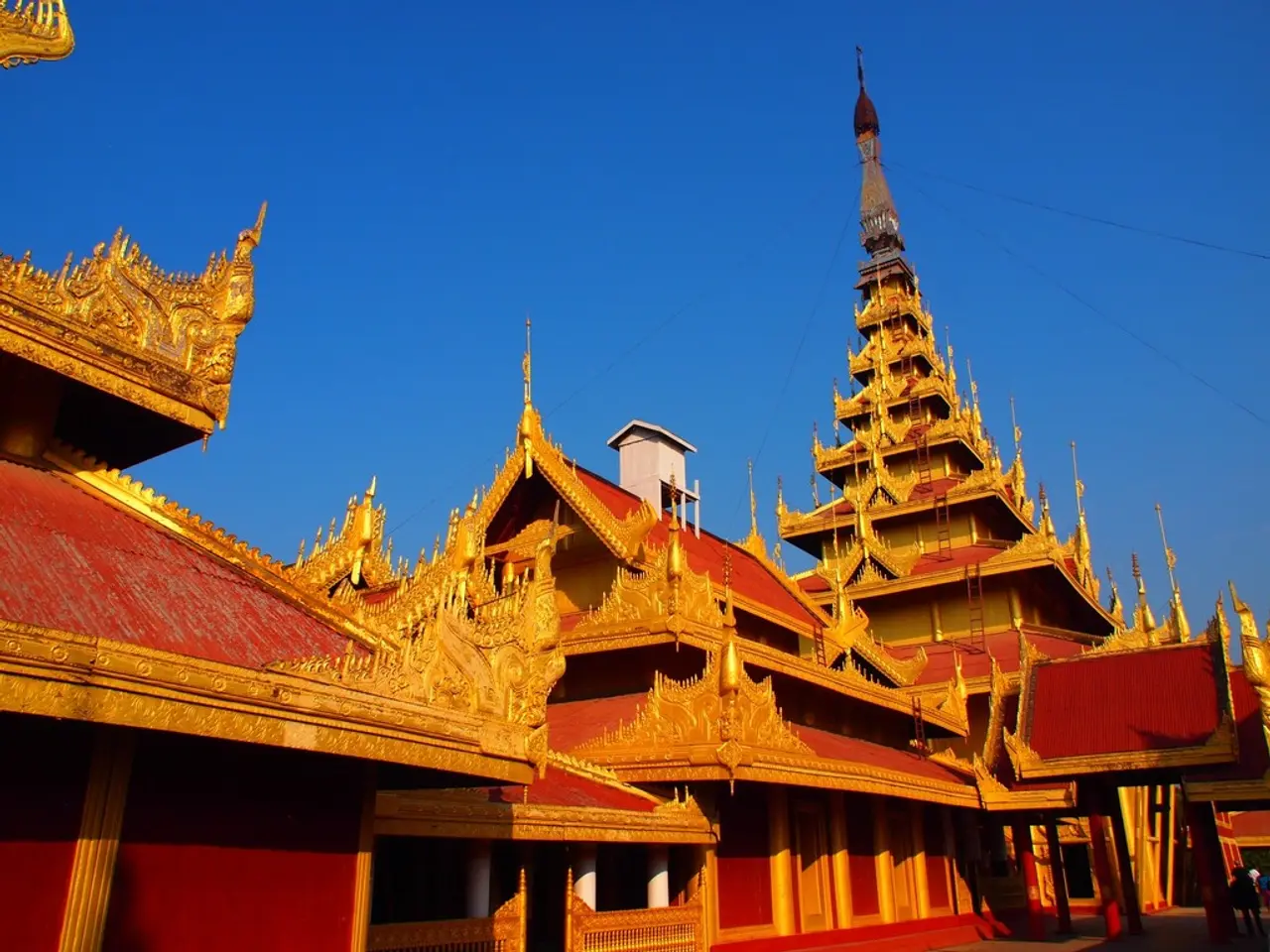Bangladesh will celebrate its revolution anniversary by pursuing a promised democratic reform, as declared.
Bangladesh's interim government, led by Nobel Peace Prize winner Muhammad Yunus, is preparing to unveil a significant slate of democratic reforms on August 5. These reforms, collectively known as the "July Proclamation," are aimed at overhauling the country's broken political and administrative systems [1].
The reforms focus on building a broad national consensus around a renewed political system that will deliver inclusive, participatory, and credible elections, set ahead of the planned general elections in early 2026 [1]. Key democratic reform proposals include restoring democratic institutions that were weakened or politicized under the previous 15-year rule of Sheikh Hasina [1][4]. This rule was marked by human rights abuses, politicization of courts and civil service, lopsided elections, and dismantling of democratic checks and balances [1][4].
Yunus has pledged to overhaul the public administration system, described as "completely broken down" by him, to enhance efficiency and fairness [1]. The reforms also aim to ensure the upcoming elections are credible and inclusive to prevent political strife and regain public trust [1][2]. A broader political consensus that involves all parties implicated in the mass uprising, which included student groups demanding reforms and constitutional revision if necessary, is also part of the plan [1][3].
However, Yunus's government is facing challenges and skepticism about its ability to implement these reforms effectively. Critics express concern that lingering political power struggles, the rise of Islamist factions, and delayed dialogue with opposition groups could hinder meaningful progress [3][4]. Human Rights Watch notes that some abuses from the previous regime have ended, but arbitrary detentions continue and systemic human rights reforms remain pending [4].
The political landscape in Bangladesh has been turbulent since a student-led revolt ousted then-prime minister Sheikh Hasina [6]. Protests began on July 1, 2024, with university students calling for reforms to a quota system for public sector jobs [5]. Thousands of protesters stormed Hasina's palace on August 5, 2024, as she escaped by helicopter [7]. Various parties are still vying for control ahead of the elections in Bangladesh [8].
Despite the challenges, Yunus remains committed to rebuilding democratic institutions in Bangladesh. His government's reforms, if successful, could mark a significant step towards a more democratic and inclusive Bangladesh. The path to implementation, however, remains uncertain due to ongoing political tensions and governance challenges [1][3][4].
References: [1] The Guardian. (2024, August 4). Bangladesh interim government to unveil democratic reforms. Retrieved from https://www.theguardian.com/world/2024/aug/04/bangladesh-interim-government-to-unveil-democratic-reforms [2] Al Jazeera. (2024, August 4). Bangladesh's political crisis: What's at stake? Retrieved from https://www.aljazeera.com/news/2024/8/4/bangladesh-political-crisis-whats-at-stake [3] BBC News. (2024, August 4). Bangladesh's political crisis: What's at stake? Retrieved from https://www.bbc.com/news/world-asia-62658207 [4] Human Rights Watch. (2024, July 31). Bangladesh: New Government Must Prioritize Human Rights. Retrieved from https://www.hrw.org/news/2024/07/31/bangladesh-new-government-must-prioritize-human-rights [5] The Daily Star. (2024, July 1). Students protest quota reforms at Shahbagh. Retrieved from https://www.thedailystar.net/frontpage/students-protest-quota-reforms-shahbagh-1886269 [6] The New York Times. (2024, August 5). Bangladesh's Prime Minister Fleeing as Protests Mount. Retrieved from https://www.nytimes.com/2024/08/05/world/asia/bangladesh-protests-sheikh-hasina.html [7] Reuters. (2024, August 5). Bangladesh: Thousands storm Hasina's palace as she flees by helicopter. Retrieved from https://www.reuters.com/world/asia-pacific/bangladesh-thousands-storm-hasinas-palace-she-flees-helicopter-2024-08-05/ [8] The Washington Post. (2024, August 4). In Bangladesh, a power vacuum as prime minister flees protests. Retrieved from https://www.washingtonpost.com/world/asia_pacific/bangladesh-power-vacuum-protests/2024/08/04/49e477a4-f063-11ee-b90b-8b64f7656c6a_story.html
- The July Proclamation, Bangladesh's democratic reforms, could potentially reshape the world's perception of the nation's political and administrative systems.
- US political analysts are closely monitoring the developments in Bangladesh's democracy-focused reforms, given their potential impact on education-and-self-development and personal-growth opportunities for citizens.
- The UN and other international bodies are expressing concerns about war-and-conflicts that could erupt due to the delay in policy-and-legislation regarding the reforms, given the ongoing political tensions and power struggles in the country.
- Car accidents and crime-and-justice incidents are on the rise in Bangladesh's chaotic streets, as the focus of the government remains on dealing with the complex political crisis and implementing the reforms.
- Local news outlets are reporting increased interest in politics and general-news topics among youth, as they closely follow the progress of the reforms and its potential effects on their future.
- With the uncertainty surrounding the implementation of the reforms, the global community is also watching for signs of systemic human rights improvements in Bangladesh, particularly in regards to addressing crimes and abuses resulting from the previous regime.




